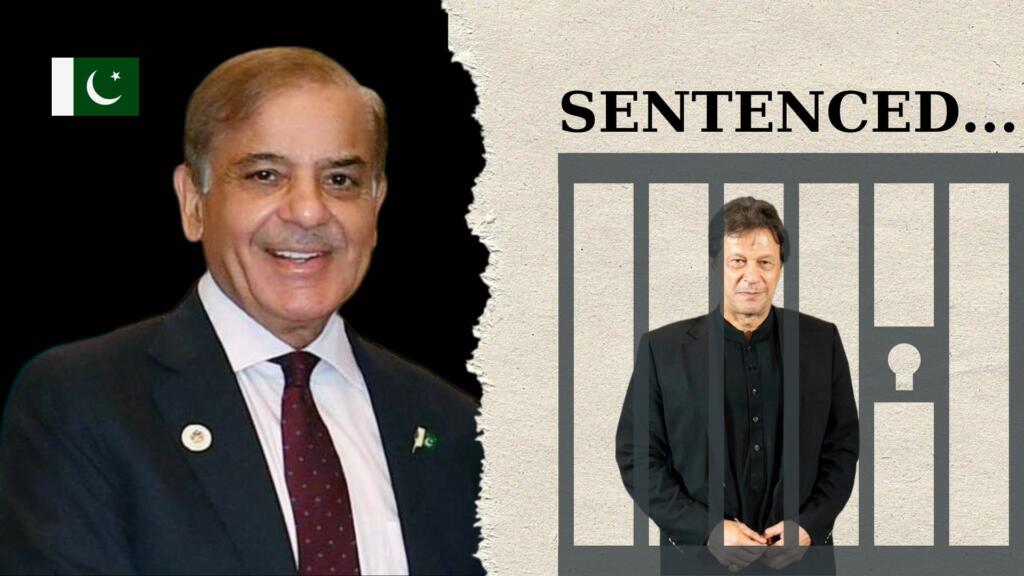The recent sentencing of former Pakistan Prime Minister Imran Khan and ex-Foreign Minister Shah Mahmood Qureshi in the cipher case has sent shockwaves through the political landscape of the country. The case revolves around the disclosure of a classified cable, protected under the Official Secrets Act 1923 of Pakistan, containing an account of a crucial meeting between US State Department officials and Pakistan’s ambassador to the US. The cable, sent to Islamabad by Asad Majeed Khan, detailed the displeasure of US officials regarding Imran Khan’s neutrality on the Russian invasion of Ukraine. Imran Khan, however, vehemently denies publicly revealing the document’s content, alleging that news outlets obtained it from alternative sources. This sets the stage for a closer examination of the cipher case, shedding light on the potential geopolitical ramifications and the controversies surrounding Imran Khan’s claims of a US conspiracy against him.
The Classified Cable
The classified cable at the heart of the cipher case provides a detailed account of a pivotal meeting held on March 7, 2022, between US State Department officials, including Assistant Secretary of State Donald Lu, and Pakistan’s ambassador to the US, Asad Majeed Khan. The cable, labeled “Secret,” remains undisclosed due to its protection under Pakistan’s Official Secrets Act of 1923. Despite the secrecy, in August 2023, The Intercept, an American news organization, reproduced a section of the document, claiming to have received it from a source within Pakistan’s military.
During the meeting, US officials expressed dissatisfaction with Imran Khan’s perceived neutrality on the Russian invasion of Ukraine, suggesting that if a no-confidence vote against him succeeded, Washington would forgive his stance on Russia. The cable was promptly sent to Islamabad by Asad Majeed Khan. Notably, Imran Khan contends that the document proves a US-backed conspiracy against him, although he denies being the source of its public disclosure, asserting that media outlets obtained it from alternative channels. The reproduction of this classified information has played a pivotal role in the ongoing legal proceedings and political controversies surrounding the cipher case.
Implications for Pakistan’s Democracy
The unveiling of the cipher case unfolded with a sequence of events starting in March 2022 when Imran Khan made a public announcement in Islamabad, revealing a ‘letter’ he claimed was proof of an international conspiracy against him. Subsequently, in March 2022, Imran began referring to the classified cable, alleging that the US had sent a threatening message through Pakistan’s envoy, Asad Majeed Khan. This marked the beginning of Imran’s repeated assertions that the cable evidenced a US-backed plot to orchestrate a no-confidence vote against him.
In response to Imran’s claims, the Pakistan Muslim League (N)-led government, in July 2023, accused him of “exposing an official secret document,” leading to the registration of a First Information Report (FIR). The charges were filed under Section 5 of the Official Secrets Act 1923, alleging Imran’s disclosure of the classified cable’s contents harmed Pakistan’s foreign relations. The legal proceedings culminated in a significant development as Imran Khan, along with ex-Foreign Minister Shah Mahmood Qureshi, received a 10-year jail sentence from a special court in connection to the cipher case. This judicial outcome has profound implications for the political landscape in Pakistan and raises questions about the intersection of national security, diplomacy, and governance.
Imran Khan’s Downfall
Imran Khan’s transition from cricket icon to political figure promised a transformative era for Pakistan, fueled by his outsider status and philanthropic endeavors. However, his premiership faced formidable challenges, contributing to his eventual downfall. Despite Khan’s charismatic appeal, his administration received criticism for unfulfilled promises, including anti-corruption initiatives and justice system reforms. A closer scrutiny revealed a significant gap between rhetoric and governance realities, with only two out of 51 manifesto promises achieved.
Economic mismanagement under Khan saw a decline in Pakistan’s GDP from $315 billion in 2018 to $292 billion in 2022, prompting reliance on IMF bailout packages and increased dependence on China. Khan’s Moscow visit further strained relations, as he accused Washington of meddling due to his stance on the Russian invasion of Ukraine. This exacerbated existing tensions with the military, highlighting the complex dynamics shaping Khan’s tumultuous political trajectory.
Also Read: Indian Navy Rescues Pakistanis, captures Pirates
Falling Out with the Army
Imran Khan’s reported relationship with the military, seen by many as the key to his selection as Prime Minister in 2018, took a dramatic turn leading to a significant fallout. The breaking point emerged during a clash over the appointment of the new Inter-Services Intelligence (ISI) chief, where Khan opposed the military’s choice, Lt Gen Nadeem Anjum, and supported Lt Gen Faiz Hameed instead. This discord underscored the power dynamics between the civilian government and the military in Pakistan, revealing a rupture in the once seemingly harmonious relationship. The military’s firm stance, particularly by Chief of Army Staff Gen Qamar Bajwa, highlighted its influence and signaled that political leaders, even prime ministers, cannot survive without the military’s backing, marking a pivotal moment in Pakistan’s intricate power structure.
Possible Diplomatic Opening
Imran Khan’s diplomatic approach towards India was characterized by antagonism, with personal attacks on Prime Minister Narendra Modi and heightened rhetoric. This strained relations between the two nations, creating diplomatic challenges. However, recent developments include backchannel communications and a sustained ceasefire along the Line of Control, suggesting a potential shift in dynamics.
Under Shehbaz Sharif’s leadership, there’s anticipation of changes in India-Pakistan relations. The Sharif family has historically displayed a positive stance toward improving ties with India, with Shehbaz advocating for peaceful dialogues on various issues. His pragmatic approach, administrative skills, and previous interactions with Indian leaders raise expectations of a more constructive diplomatic engagement.
In conclusion, Imran Khan’s departure and potential leadership under Shehbaz Sharif could mark a turning point in Pakistan’s political landscape. This change might pave the way for improved regional diplomacy, particularly with India, fostering stability and cooperation in the region. The evolution of these diplomatic dynamics will be crucial to watch in the coming years.
